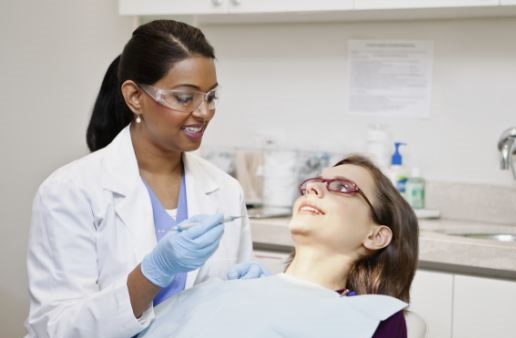
Everyone, right from childhood to old age, people are always concerned about their teeth and oral health. Though they may not visit the dentist very often, they want their teeth to be perfect and they take special care of them in order to have a nice and beautiful smile. Intensive teeth care is important as they help you to chew your food and gives a perfect jawline to go along with your face.
Brain Works Intently While Chewing
Experts are often seen discussing about oral health and suggest you to actively chew your food. Teeth problems are very common these days and people often suffer from such issues. They observe a slow decline in cognitive abilities and a fall in the number of teeth when people age. Recent studies have shown that sudden loss of teeth in older people may affect a person’s memory as well. Scientists have claimed that the movement of our teeth and jaw will send sensory impulses to the brain that forms and retrieve memories. Therefore, those without teeth will produce lesser signals to be sent to the brain, which is called the hippocampus and hence will result less brain activity.
This was declared according to a recent research published online by the European Journal of Oral Sciences and was carried out by universities in Norway and Sweden. They have observed that 273 people between the age of 55 and 85 have a significant relationship between the number of natural teeth that they have and their performance in memory tests. The average number of teeth, they possess is 22, which are around 10 teeth less than the standard human dentition formula of 32. Most of the lost teeth were the molars only. These are the prime reasons for memory losswhich were very evident in people taking these tests.
Those people, then took these memory tests with teeth gum problems and identified that the number of natural teeth could account for 14% of the variance in semantic memory (concept-based knowledge with all the understanding and meanings) and 15 % of variance in episodic recognition and 20% of variance in the recall of previous instances. These memory loss causes are also due to the reduced sensory impulse from teeth that cause damage to the memory.
Although artificial dental implants can restore the sensory signals to some extent, they still send few transmission signals to the brain. All the studies are supported by earlier researches which were conducted on rats. All the previous studies conducted on animals suggest that teeth that were pulled out of them had memory and learning problems and those that lost a number of teeth showed higher neuronal losses and high damage to hippocampus.
Alternate Reasons For Memory Loss
Other reasons of memory loss are associated with aging and falling teeth and decrease in chewing capacity may not let people eat all kinds of food, thereby making them devoid of nutrients and hence that can be a contributing reason for memory loss.
Researchers at University of California examined nearly 5,500 elderly people for about 18 years and found that those who brushed their teeth less than once a day were 65% more prone to dementia rather than those who brushed three times a day.
Studies observed that people suffering from Alzheimer’s disease or memory loss problem have gum-disease bacteria in their brain that is thought to lead to inflammation and brain damage.
Calcium For Teeth
To sum it all up, a person should take care of their oral health and most importantly their teeth. There is medicine for memory loss which is simple and easy to take. All elderly people should take adequate amount of calcium either through their diet or by calcium supplements for strong and healthy teeth. Instead of having no teeth or using braces for teethone should take care of their teeth properly and stay healthy. All the memory loss issues will also be resolved if your teeth are healthy and you can sport a wide grin always.

